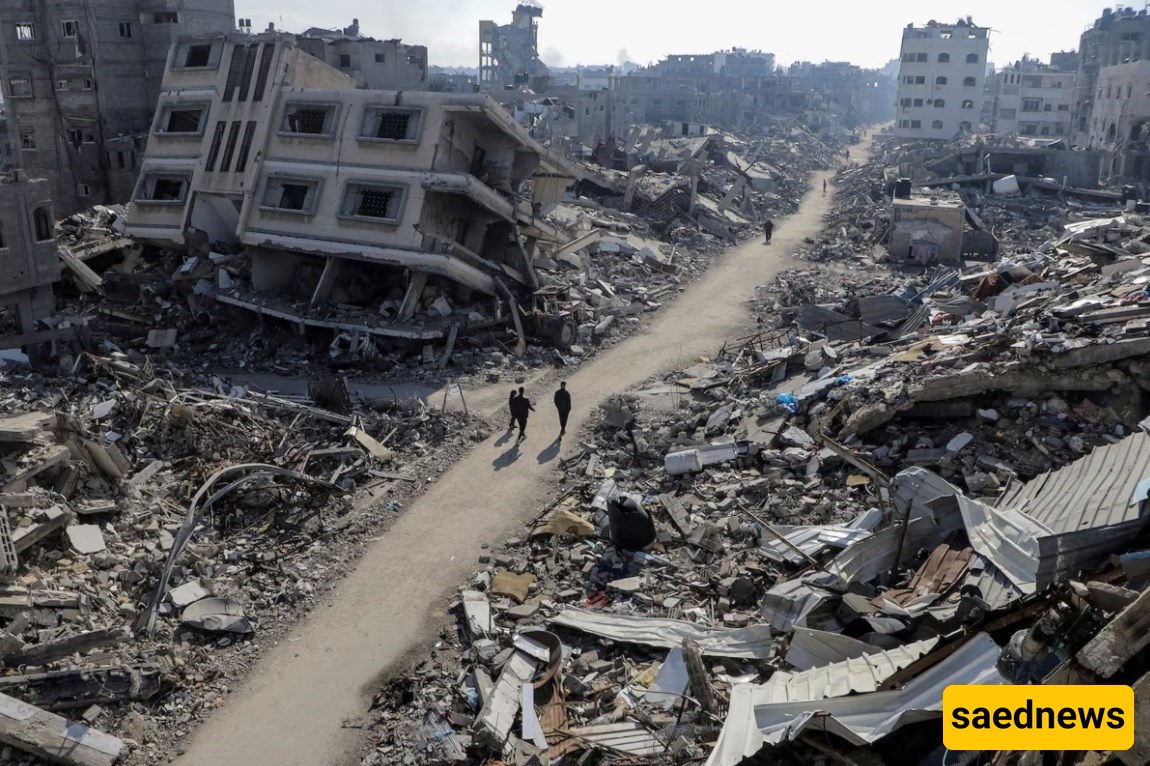SAEDNEWS: As ceasefire negotiations between Israel and Hamas reach a critical deadlock, Israeli Prime Minister Benjamin Netanyahu has adopted his most hardline stance yet, calling for the “complete conquest” of the Gaza Strip.

According to a report by Saed News, citing CNN, weeks of negotiations involving regional and international mediators to establish a ceasefire between Israel and Palestinian resistance groups have ended without a breakthrough. As diplomatic efforts stalled, Prime Minister Benjamin Netanyahu issued an official statement calling for the “final advance and complete conquest” of Gaza — a phrase analysts interpret as signaling the beginning of the war’s final phase and a shift from military operations to full-scale occupation.
Sources close to the Israeli government say Netanyahu believes that without full physical and military control over Gaza, it is impossible to “guarantee Israel’s security.” He has repeatedly stressed that the destruction of Hamas remains the primary objective of the campaign, and that leaving the war unfinished would only lead to the resurgence of the threat.
Deadlock Wall in Ceasefire Talks
Negotiations between Egypt, Qatar, the United States, and the United Nations to broker a ceasefire have stalled due to fundamental disagreements. The most critical points of contention revolve around the return of displaced Palestinians, the release of prisoners on both sides, and the formation of an independent Palestinian state. Hamas is demanding a permanent ceasefire and the withdrawal of Israeli forces from Gaza, while Israel has only agreed to a temporary truce and insists on maintaining security control over the territory.
According to analysts, Netanyahu’s latest positions have effectively closed the door to any potential agreement and fueled the most hardline military scenarios.
The Human Cost of “Complete Conquest”
“Complete conquest” effectively means the full entry of the Israeli military into central and southern Gaza—areas where millions of civilians have sought refuge. If implemented, this plan would push the existing humanitarian disaster to unprecedented levels.
International organizations such as the Red Cross and the United Nations have warned that the humanitarian conditions in Gaza have reached the brink of a “full-scale catastrophe.” Severe shortages of food, water, medicine, and shelter—combined with relentless bombardments—have left millions on the edge of death and total displacement.
Any further full-scale assault, without international guarantees for the protection of civilians, could constitute a war crime.
Netanyahu’s Real Motives: Security or Domestic Politics?
Some Israeli and international analysts argue that Netanyahu’s aggressive stance is not purely rooted in security concerns but is closely tied to his domestic crises. Facing widespread protests, corruption charges, and a collapse of political legitimacy, the war in Gaza has become a tool for diverting public attention and rebuilding his political power.
Polls indicate that a significant portion of the Israeli public is dissatisfied with the management of the war, yet in the current security climate, they continue to support military operations. Netanyahu is leveraging these sentiments to pursue a policy of “war until final victory.”
Silence or Complicity? What Will the Global Response Be?
So far, the international community has not issued a firm response to Netanyahu’s latest statements. While the United States claims to support ceasefire efforts, it continues to supply Israel with military aid.
The European Union’s Stance
Despite human rights warnings, the European Union has refrained from taking concrete action against Israel’s violations of international law. This silence—or indirect support—from the West has raised concerns that the international community may be preparing to accept a wider catastrophe in Gaza.
The Role of Regional Countries
Meanwhile, the roles of Egypt, Qatar, Turkey, and Iran are crucial in the unfolding developments. Egypt, as a key mediator, is deeply concerned about the complete collapse of security at the Rafah border. Qatar, hosting the negotiations, sees its diplomatic credibility at risk.
Iran, on the other hand, has intensified its rhetoric against Israel and increased support for the resistance axis, aiming to shift the regional balance in its favor. However, it remains unclear whether these countries will be able to steer developments away from a military path back toward diplomacy.
Future Outlook: What Lies Ahead?
Netanyahu’s statements about the “complete conquest” of Gaza have not only removed the ceasefire from the agenda but also raised the risk of entering a new phase of war—a conflict that could engulf not only Gaza but the entire region.
If Israel launches a broader military operation in Gaza, resistance groups in the West Bank, southern Lebanon (Hezbollah), and potentially other fronts could escalate the conflict to a regional level.
Under such circumstances, the international community and global organizations must decide whether they will remain passive observers or take a more active role in preventing a greater catastrophe.
Summary
Benjamin Netanyahu’s remarks about the “complete conquest” of Gaza have ended any remaining hopes for a ceasefire and marked the beginning of a new chapter of war and instability in the Middle East. Today, more than ever, the world needs diplomatic courage, effective international pressure, and urgent efforts to save the lives buried under the rubble of war—not just the repetition of neutral statements and ineffective condemnations.

